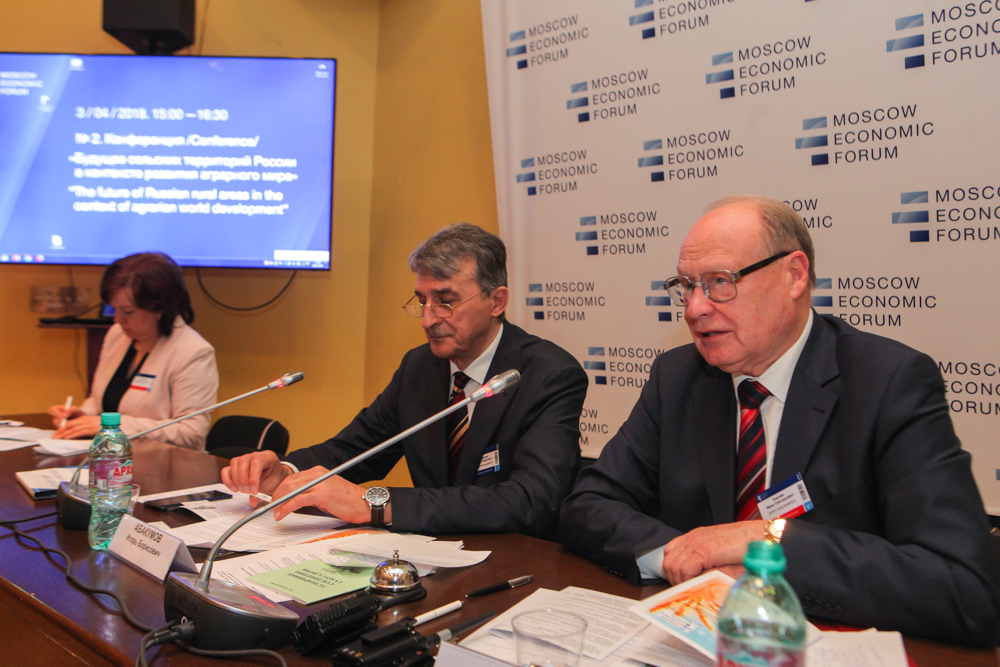
Published: May 7th, 2018
Ivan Usachev, who drew the participants’ attention to the fact that agricultural production in Russia is gradually growing, but this is not a reason for euphoria, opened the event. After all, farmers lose their margins. Losses due to a fall in prices for the sale of agricultural products for wheat, sunflower and sugar beet in 2017 amounted to half of the total state support for the agricultural sector for this period.
"Poverty in the country has a country face, 21.9% of the rural population lives below the poverty line," Ivan Ushachev said. The director of the Center for Agro-Food Policy of the Russian Academy of Science under the President of the Russian Federation, Natalya Shagayda, developed the topic. She said that the number of rural municipalities is reduced by 2% annually; power is alienated from the people. The village ceases to be a place where the agrarians live, there live people who are engaged in other activities.
According to the speaker, over 50% of farms do not receive state support or it is insignificant, taxes do not enter the countryside, the land is not demarcated and is not in municipal ownership.
Olga Bashmachnikova said that along with the outflow of the rural population, a process is also observed when families and young people come to the village. To make it more visible, state support is needed.
The reporter noted that the cooperation would allow both to return agrarians to the village, and to increase agricultural production, and, accordingly, the profit of farmers. Today, out of 2 million personal subsidiary plots in Russia, 70% are not interested in increasing output. To change the situation, they must be combined.
Marina Mityanina shared foreign experience in the development of cooperation in the countryside. She said that in Denmark 100% of meat and dairy products are sold through agricultural cooperatives. Farmers make a profit after selling finished goods, rather than raw materials for its production. In this country, no bankruptcy of the cooperative has been registered in the history. Marina Mityanina specified that the principle of cooperation in Denmark - one farmer - one vote. They are full members of the association.
Experts consider the priority measures for the development of the Russian village as the development of a development strategy for each municipal entity, a change in the taxation system when most of the allocations of rural workers remain in local budgets, the development of cooperation, transport and social infrastructure.
In addition, in the opinion of the participants, it is necessary that cooperation is not planted from above and does not represent a vertical structure that does not belong to farmers. When allocating subsidies for the support of the agro-industrial complex, it was suggested to focus not on agro-holdings, but on small and medium-sized farms. It is necessary to change the attitude towards municipal entities fundamentally, making them the main link in implementing the strategy and programs for sustainable development of the village, experts say.
Latest news
07.05.2018 MEF-2018: debate "Cultural policy: between individual freedom and the interests of society?"
07.05.2018 MEF-2018: Conference No. 8
07.05.2018 MEF-2018: Conference No. 4
07.05.2018 MEF-2018: Conference No.3
07.05.2018 MEF-2018: Conference No.1
26.04.2018 McConnell Discusses Information Warfare
20.04.2018 MEF-2018: closing plenary session
17.04.2018 Mr. Freysinger: «Skripal’s case» for relationship between Russia und European Union?
09.04.2018 MEF-2018: III Plenary discussion
